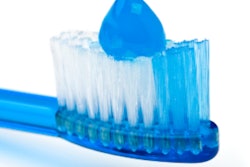
Caries is the most common chronic disease in children ages 5 to 17, according to the 2000 U.S. Surgeon General's Report, and research has shown that caries is five times more common than asthma and seven times more common that hay fever. But preventing caries requires more than just regular dental care -- it requires active management at home.
Researchers from the Louisiana State University Health Sciences Center and Louisiana State University Shreveport studied the effectiveness of in-depth parental dental education and its influence on their knowledge and also the oral and dental health practices of their children. They presented their results at the recent American Public Health Association (APHA) annual meeting in New Orleans.
The researchers looked for study participants who were parents of children ages 1 to 12 who were patients of the dental department at the David Raines Community Health Center in Bossier City, LA. Researchers enrolled 70 parents initially, but recruited 38 of these parents (19 in each the treatment and control groups) for data collection at the end of the study.
The ages of the children participating in the study ranged from 2 to 14, with 21 female patients and 17 male patients in the data collection cohort. Ages of the parents and caregivers ranged from 19 to 57, with a majority of them in the 25 to 35 age range and female. The researchers noted that mothers seemed to be more involved in their children's care.
“Educating parents about oral hygiene does have a positive effect on their children's oral hygiene practices.”
The racial profile of the parents and caregivers was African-American (58%), Caucasian (21%), Hispanic (11%), Asian (8%), and other (about 2%). About a third of parents and caregivers had a high school education, four had received a degree or diploma, and the rest had some high school or less. A majority of them were unemployed, and most were on Medicaid. Generally, the "dental need seemed to be higher" among the African-American, less educated, and unemployed populations, the researchers noted.
The researchers asked both groups about their "current" knowledge about dental health and practices with a short questionnaire. Additionally, the treatment group received a 30-minute, in-depth dental education program, covering the importance of healthy teeth, plaque, dental caries, and brushing and flossing techniques.
A month after the first visit, the researchers reassessed participants in both treatment groups with the same questionnaire they were asked previously. They received 20 responses via phone and email.
According to the parent responses, "almost all the child patients in both the control and treatment group followed a daily regimen of toothbrushing." After the intervention, the treatment group "showed improvement with daily toothbrushing, frequency, and timing of toothbrushing," the authors noted.
Parents also "showed an increased awareness" in knowing about the kind of toothpaste used by the family and the children, in looking for fluoride in the toothpastes, identifying the kind of toothbrush used by their children, and the duration of toothbrushing. Compared with the toothbrushing results, flossing was not followed by the child patients on a regular basis before the intervention, the authors reported. Following the intervention, the researchers found "considerable improvement" in daily flossing in the treatment group.
The process "illustrates the patient attitude and response toward education programs," as about half the patients did not respond to the poststudy evaluation, according to the authors. They did conclude, however, that overall, the analysis indicates greater awareness in patients' oral hygiene knowledge and children's oral hygiene behavior, and that educating parents about oral hygiene does have a positive effect on their children's oral hygiene practices.
The study was titled "Determining the effect of parental dental education on dental hygiene practices in their children."The authors were Dennis Wissing, PhD, and Deepa Pishey, BDS, MHA, MPH. More about the study can be accessed on the APHA website.



















